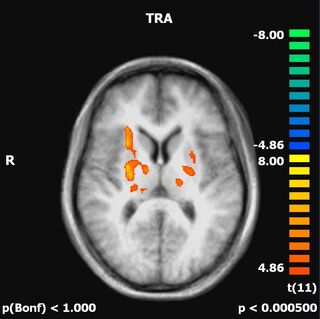Neuroscience
Why Consciousness Research Should Be Conducted by Romantics
Science is clueless about the role of consciousness in the world.
Posted November 1, 2022 Reviewed by Ekua Hagan
Key points
- The romantic movement of the year 1800 combined work on poetry and science and polemicized against the materialistic world view of their age.
- Still today, many thinkers deny the existence of conscious experience, despite it being reported universally by human beings.
- Everyone needs to think out of the box in order to understand consciousness.
Andrea Wulf’s book Magnificent Rebels is about a group of romantics who lived, loved, and worked around the year 1800 in Jena: men and women who were philosophers, writers, poets, scientists, and engineers. Wulf cites one of the romantics, the poet Novalis, who came up with the symbol of inspiration of the blue flower, with his definition of what romanticism is: "By giving the commonplace a higher meaning, by making the ordinary look mysterious, by granting to what is known the dignity of the unknown and imparting to the finite a shimmer of the infinite, I romanticise" (p. 164). Note that the original meaning of "romantic" comes from le roman in French and Der Roman in German, the novel in English. It is about living a life worth being written about in a dramatic novel.
The romantic movement which combined work on poetry and science polemicized against the materialistic worldview of their age where the universe was nothing but a soulless machine governed by the precise physical laws of nature. Any form of wonder or spirituality had been stripped away by the physicalist conviction. More than 220 years later this scientific worldview prevails, perhaps best expressed in often-read statements by neuroscientists and philosophers alike that thoughts and feelings are solely explainable by, or nothing other but, neural processes.

Consciousness perception as an illusion is reduced to activity in the brain. If we understand the brain, we know everything about what it is like to be a human. In essence, this ideological stance strangely tries to get rid of what is primarily and immediate: phenomenal consciousness. Because consciousness, supposedly existing also for reductionist physicalists, has yet not been explained by science, so, therefore, it does not exist or is merely an illusion. The British philosopher Galen Strawson in his article, "A hundred years of consciousness: a long training in absurdity” mocks the “most remarkable episode in the history of human thought” in that such thinkers deny the existence of what everyone knows with certainty to exist: conscious experience. The problem of consciousness is so strikingly different from all other scientific problems (concerned with the objective world) that deniers want to argue it away: It does not exist. I once attended a talk by a philosopher who stated with fervor that he was a physicalist as if he had said that he was a political activist for a certain cause or a supporter of the F.C. Liverpool. It sounded much like an ideological conviction he had to defend against heretics who still think that the study of consciousness is about a real entity in the world.
Why would I mention the romantics in relation to the 21st-century consciousness-brain problem? Brain science to date has no answer to the hard problem of consciousness, i.e. how neural activity would give rise to experience. There is yet an unbridgeable gap between the level of neural processes (the objective perspective) and phenomenal consciousness as a first-person perspective of what it feels like to have an experience. Anil Seth in his book Being You eloquently summarizes some of the recently developed theories of consciousness. Yet, all the attempts are about the easy problem of consciousness, i.e. how neural systems function when “somehow” correlating with conscious experience. Related, see my Psychology Today post, "Why Most Neuroscientific Theories of Consciousness Are Wrong."
Nobody has an idea as to how subjective feelings can be derived from matter. Whatever physicists and neuroscientists tell us, they cannot explain how consciousness comes about, why it is universally reported by human beings and, therefore, has to exist in the universe. Why not start a new romantic movement that gives “the commonplace a higher meaning, by making the ordinary look mysterious, by granting to what is known the dignity of the unknown and imparting to the finite a shimmer of the infinite"? Since nobody has a clue how consciousness comes about, and since it is so commonplace, has a higher meaning for us, is mysterious, and has the dignity of the unknown, we should all romanticize. Annaka Harris, in her book Conscious, provides the reader with some ideas recently developed by scientists as to where such a journey might lead. We have to think out of the box if we want to understand consciousness.
The romantics from 1800, by the way, were deeply interested in science. They wanted to integrate science and poetry. The philosopher F.W.J. Schelling in 1801 believed that the conscious inner light we experience is part of nature. I and nature are one, two different sides of the same coin. In modern terms, consciousness is brain activity from within. Similarly, as debated by Galen Strawson, if everything is governed by physical laws, consciousness would be part of physics as well, physics from within the first-person perspective. Schelling and the romantics and proponents of some very recent ideas share many communalities. The world is still mysterious. Science will make progress with a breeze of romanticism.
Note: The German philosopher and romantic F.W.J. Schelling had several intuitive ideas on consciousness, which modern psychological and neuroscientific concepts seem to share, let alone my own. In my Psychology Today blog, "The Mystery of Subjective Time: A Case for Embodiment," I argue for the strong connection between the sense of time and feelings of the bodily self, based on phenomenology and functional brain research. The sense of self and time are intricately bound. That is exactly what Schelling wrote in 1800: “Time is not something that runs independently of the I, but the I is time conceived in activity."
References
Harris A. (2019). Conscious. New York: Harper Collins.
Schelling, F.W.J. (1800/1985). System des trancendentalen Idealismus. In: Gesammelte Schriften 1. 1794-1800. Frankfurt: Suhrkamp.
Schelling, F.W.J. (1801/1985). Ueber den wahren Begriff der Naturphilosophie und die richtige Art ihre Probleme zu lösen. In: Gesammelte Schriften 2. 1801-1803. Frankfurt: Suhrkamp.
Seth, A. (2021). Being you. A new science of consciousness. London: Faber & Faber.
Strawson, G. (2019). A hundred years of consciousness: “a long training in absurdity”. Estudios de Filosofía 59, 9-43.
Wulf, A. (2022). Magnificent rebels. The first romantics and the invention of the self. London: John Murray.


